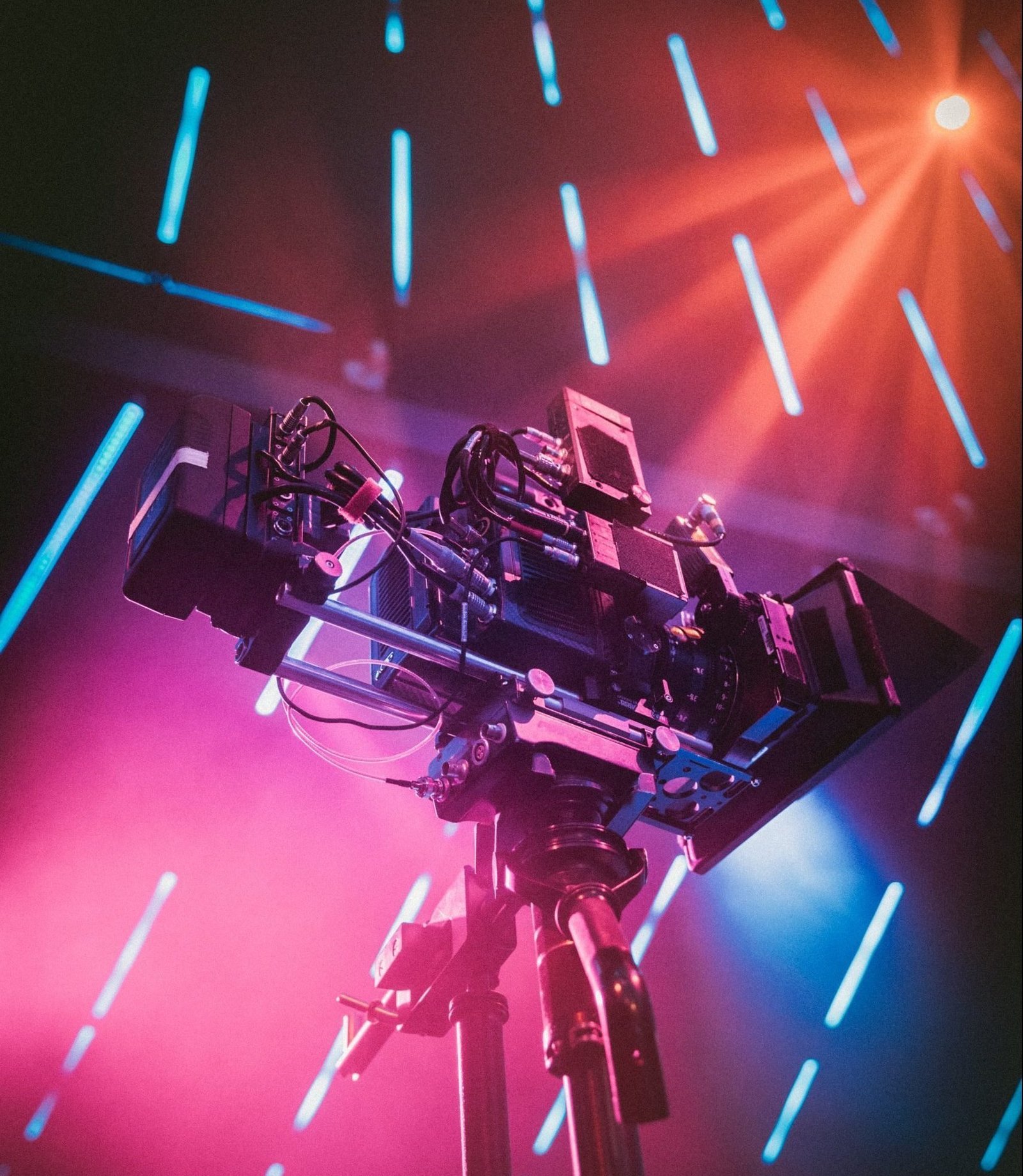
Revolutionizing SEO with Artificial Intelligence: The Future of Search Engine Optimization
Published by Tou Moua • February 12, 2023

SEO, or Search Engine Optimization, is a crucial aspect of digital marketing that involves optimizing a website to improve its ranking and visibility on search engines like Google. The ultimate goal of SEO is to attract more organic traffic to a website and increase its online visibility, making it easier for potential customers to find and engage with the brand.
SEO has become increasingly important in recent years as the internet has become a primary source of information for many people. By using relevant keywords and optimizing content, a website can rank higher on search engines, making it more likely that users will find it when searching for a specific product or service. This not only helps businesses reach more customers, but it also helps build brand credibility and authority, establishing the business as a leader in their industry.
SEO is an essential component of any effective digital marketing strategy, providing a website with increased visibility and driving more organic traffic to the site. By using various techniques to improve a website’s ranking, businesses can reach more customers, establish their brand, and achieve long-term success in the digital landscape.

The world of search engines is constantly evolving, and with it, the strategies and techniques used to optimize websites for search engines must adapt. The need for innovation in SEO is driven by the growing importance of online presence in today’s digital landscape and the ever-changing algorithms of search engines like Google. Businesses today must stay ahead of the curve in order to maintain their visibility and competitiveness in search results.
By embracing new technologies like Artificial Intelligence and Machine Learning, businesses can improve their SEO practices and drive even better results for their websites. The future of SEO is about leveraging innovation to gain a competitive advantage and stay ahead in an ever-evolving digital world.

Artificial Intelligence (AI) has changed the face of search engine optimization (SEO) and transformed how businesses approach online visibility. With AI’s capability to process vast amounts of data and automate repetitive tasks, it’s opened new doors for search marketers to optimize websites and increase organic traffic.
The implementation of AI in SEO is not only revolutionizing the way we approach optimization, but it’s also providing marketers with new opportunities to gain a competitive edge. AI algorithms can analyze and understand complex patterns, predict user behavior, and identify trends that were once impossible to discover. This provides businesses with valuable insights into consumer behavior and helps to create more personalized experiences.

AI can also automate tedious and time-consuming tasks such as keyword research, competitor analysis, and link building, freeing up time for search marketers to focus on higher-level strategies and creative campaigns. Additionally, AI-powered tools can continually monitor and update websites, helping to ensure that they’re always ranking for the most relevant keywords and meeting the ever-changing needs of search engines.
AI is playing a major role in the future of SEO and is poised to continue to shape the industry in new and exciting ways. By leveraging AI technology, businesses can stay ahead of the curve, drive more organic traffic, and achieve greater search engine visibility.

AI is the simulation of human intelligence processes by machines, such as computers, robots, and software. With its ability to analyze, reason, and learn from data, AI has become a key tool for businesses to improve their operations and gain a competitive edge.
From automating routine tasks to powering personalized experiences, AI is changing the way organizations approach problem-solving and decision-making. AI applications are wide-ranging, from machine learning and deep learning to natural language processing, computer vision, and robotics.

In the field of SEO, AI has the potential to revolutionize the way we optimize websites for search engines and reach target audiences. With AI-powered tools, SEO professionals can gain deeper insights into user behavior, automate keyword research, and streamline link building efforts, among other things
By leveraging the power of AI, businesses can optimize their websites and online presence more effectively and efficiently, leading to higher search engine rankings, more traffic, and improved revenue. The need for innovation in SEO is clear, and AI is set to play a big role in shaping the future of search engine optimization.

AI technology has been making great strides in revolutionizing the digital marketing world, including the field of search engine optimization (SEO). Here are some of the main advantages of using AI in SEO:
- Improved accuracy: AI algorithms are able to analyze massive amounts of data and provide more accurate results compared to manual analysis. This leads to better decision-making and more effective SEO strategies.
- Efficient keyword research: AI tools can quickly analyze search data and suggest keywords based on relevance, popularity, and competition, allowing you to stay ahead of the competition.
- Enhanced user experience: AI can be used to provide personalized content and improve the overall user experience on your website, leading to increased engagement and conversions.

- Advanced link building: AI can help you find the right links and track your progress, giving you a clear view of your link-building efforts and where you can improve.
- Real-time data analysis: AI algorithms can monitor and analyze your website’s performance in real-time, providing up-to-date information and insights to help you make the right decisions.
- Automation of tedious tasks: AI can automate time-consuming tasks, such as link building and data analysis, freeing up more time for you to focus on other aspects of your SEO strategy.
Overall, AI is a powerful tool that can greatly enhance your SEO efforts and drive significant results for your business.


The potential of AI in transforming SEO is immense, as it has the capability to revolutionize the way search engine optimization is done. AI has the power to streamline and automate many tedious and time-consuming SEO tasks, freeing up time for marketers to focus on more strategic initiatives. Some of the key areas in which AI can impact SEO include:
- Keyword research and analysis: AI can quickly process large amounts of data to identify high-value keywords and provide insights into the search behavior of target audiences.
- Content creation and optimization: AI can generate high-quality content, including product descriptions, meta tags, and headlines, which are optimized for search engines.

- Link building and analysis: AI can analyze vast amounts of link data to determine the quality and relevance of links, enabling marketers to prioritize their link-building efforts.
- Site architecture and technical optimization: AI can analyze site structures, URLs, and other technical factors to help marketers identify and fix any issues that may be hindering their website’s search engine performance.
- Reporting and analysis: AI can provide real-time, data-driven insights into the performance of a website and help marketers make informed decisions about their SEO strategies.
The integration of AI into SEO has the potential to drive significant improvements in search engine visibility, website traffic, and conversion rates, helping businesses stay ahead of the competition and meet their SEO goals.

AI-powered tools and techniques have made it possible for businesses to streamline and automate many SEO tasks, including keyword research and optimization.
Keyword research is an important aspect of SEO, as it helps businesses understand what their target audience is searching for and what keywords they should target to rank higher in search results. Traditional keyword research methods involved manual analysis of search data and competitor analysis, which was time-consuming and often resulted in inaccurate data.

AI-powered keyword research tools, on the other hand, leverage machine learning algorithms to analyze large amounts of data and provide accurate and up-to-date information on search trends, competition, and potential keywords. These tools can also suggest long-tail keywords and provide insight into keyword intent, allowing businesses to optimize their content and target keywords that are more likely to drive traffic and conversions.
When it comes to keyword optimization, AI can also help businesses improve their on-page optimization and meta tags by analyzing the relevance of their content and making suggestions for improvement. For example, AI-powered tools can analyze the readability of content and make suggestions for improvement, ensuring that it is easily understood by both users and search engines.
AI-powered tools and techniques have significantly improved the efficiency and accuracy of keyword research and optimization, allowing businesses to gain a competitive edge in search results and drive more organic traffic to their website.


AI is transforming the way in which content creation and analysis are performed in the world of SEO. With its advanced algorithms, AI-powered tools and techniques can help marketers and SEO experts generate more relevant and high-quality content that is optimized for both users and search engines.
One of the key advantages of using AI for content creation is that it enables marketers to generate content at scale and with greater efficiency. AI algorithms can quickly analyze large volumes of data and provide insights that help to inform the creation of content that is highly targeted and optimized for specific keywords and search terms.
Another advantage of using AI for content analysis is that it allows marketers to gain a deeper understanding of their target audience and the topics that they are searching for. AI tools can analyze large amounts of data from search engines, social media, and other sources to identify the topics and trends that are most relevant to their target audience.

Finally, AI can also help to optimize the structure, tone, and format of content to improve its search engine ranking and visibility. For example, AI algorithms can be used to analyze the structure and format of existing content, as well as to generate recommendations for how to optimize it for maximum visibility and engagement.
AI is revolutionizing the way in which SEO is performed, from content creation and analysis to keyword research and optimization. With its powerful algorithms and advanced analytics capabilities, AI is helping SEO experts and marketers to generate more effective, high-quality content and to improve the visibility and ranking of their websites in search engine results pages.
Site structure is a critical aspect of search engine optimization, and AI is changing the game. With the help of advanced algorithms, AI powered tools can analyze your website’s structure and provide actionable insights for optimization. This includes recommendations for improving internal linking, organizing content into categories, and creating a logical hierarchy for pages.
One of the key benefits of using AI in site structure optimization is the ability to process vast amounts of data in real-time. This means that AI can quickly identify patterns, connections, and trends that might not be immediately apparent to human experts. With this information, AI can make informed recommendations for improving your site’s structure to maximize search engine visibility.

Additionally, AI-powered tools can automate the process of making site structure changes. This not only saves time but also reduces the risk of human error. With AI, you can be sure that changes to your site’s structure are based on data-driven insights, rather than guesswork.
AI is revolutionizing the way we think about site structure optimization, offering new opportunities for SEO success. With AI powered tools and techniques, you can gain a deeper understanding of your website’s structure, identify areas for improvement, and make data-driven changes that will have a lasting impact on your search engine rankings.

Link building is a crucial aspect of search engine optimization (SEO), as the quality and quantity of links pointing to a website can impact its visibility and ranking in search engine results pages (SERPs). With the advent of artificial intelligence (AI), new tools and techniques have been introduced to simplify and streamline the link building process.
AI-powered link building tools and techniques can automate many of the manual, time-consuming tasks involved in link building, such as finding link opportunities, analyzing competitor links, and monitoring link performance. These tools use machine learning algorithms to analyze vast amounts of data, identify patterns and trends, and make predictions based on the data they collect.

Some of the benefits of using AI in link building include:
Efficient link research: AI-powered link building tools can help SEOs quickly identify link opportunities and prioritize them based on their relevance, authority, and potential impact on search rankings.
Data-driven insights: By analyzing large datasets, AI tools can provide SEOs with valuable insights into their link profiles and the link profiles of their competitors, enabling them to identify areas for improvement and make more informed link building decisions.
Automated reporting: AI tools can automate the process of link tracking and reporting, providing SEOs with regular updates on the performance of their link building campaigns.
Improved accuracy: AI algorithms can help to identify links that are more likely to drive traffic and boost rankings, reducing the risk of wasting time and resources on links that don’t deliver results.

AI is revolutionizing the way SEOs approach link building, offering new tools and techniques that can help streamline the process, improve accuracy, and increase the efficiency of link building campaigns. Whether you’re a seasoned SEO professional or just starting out, the potential benefits of AI in link building make it a valuable investment for any SEO strategy.

AI has the ability to analyze vast amounts of data and provide accurate and insightful reports in a matter of seconds. In the world of SEO, this is an enormous advantage, as it allows for more accurate and data-driven decision-making. Here are some ways AI can assist with data analysis and reporting in SEO:
Keyword research: AI can help identify the most relevant and high-performing keywords, based on the analysis of search data and user behavior.
Site performance analysis: AI can analyze a website’s performance in real-time, providing detailed insights into how well it’s ranking, what pages are driving traffic, and what might be causing a drop in rankings.
Competitor analysis: AI can analyze the competition and provide insights into their SEO strategies, including keyword usage, content creation, and backlinks.
Link analysis: AI can help identify valuable backlinks and provide insight into the quality of inbound links and their impact on search engine rankings.
Data-driven recommendations: Based on the analysis of data, AI can provide actionable recommendations for improving a website’s SEO performance, such as optimizing content or improving site structure.
By leveraging AI-powered tools and techniques, businesses can significantly improve the accuracy of their data analysis and reporting, leading to better-informed decisions and improved SEO results.
